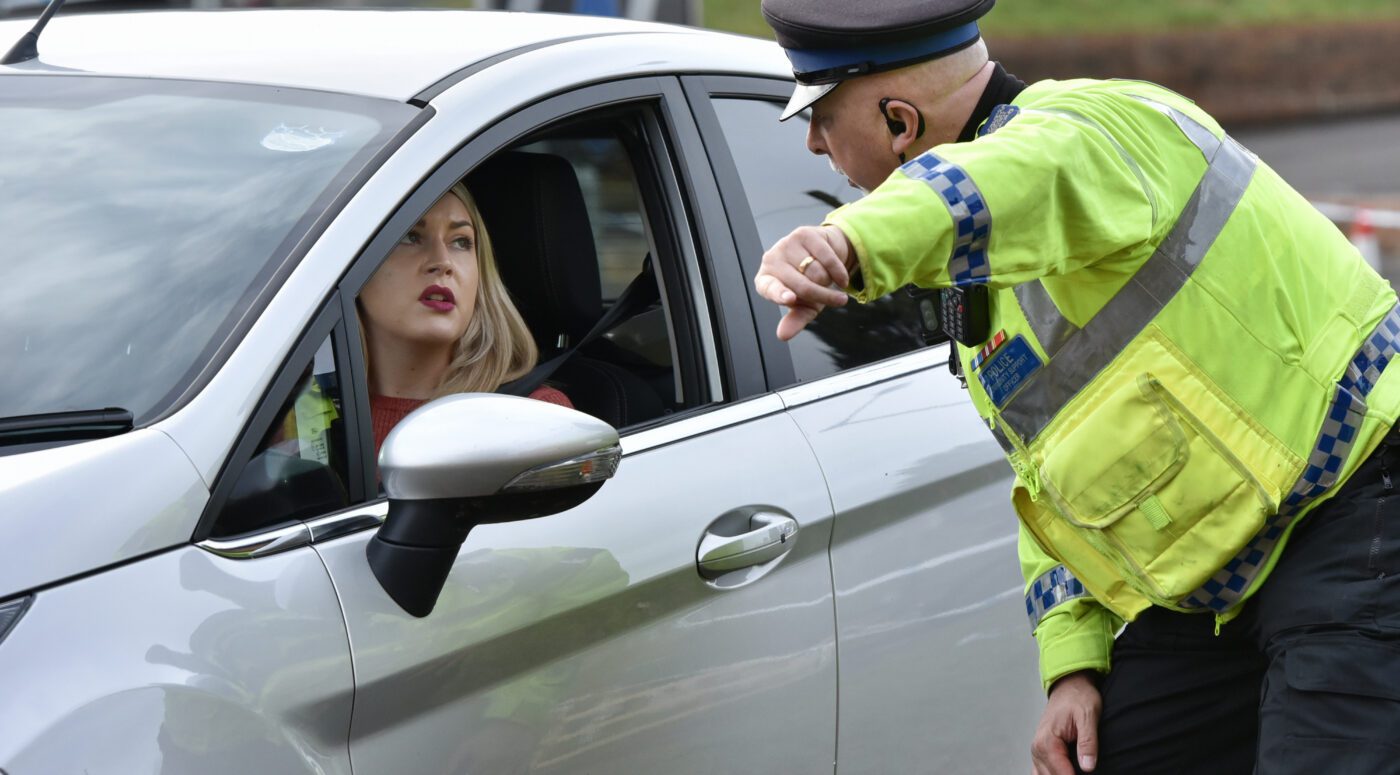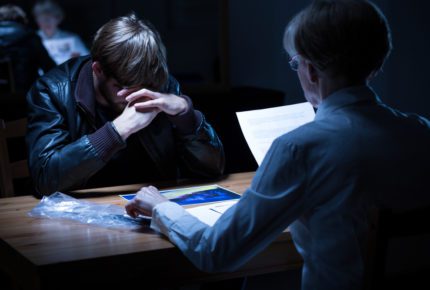

If you have been charged with the offence of being drunk or under the influence of substances whilst in charge of a vehicle, you might have been surprised to discover that you could be arrested for an alcohol-related motor offence even though you were not actually driving at the time. As unfair as this may seem, don’t lose hope. The law around motoring offences and alcohol is complex and there are a selection of technical defences that you may be able to rely upon. Read on to understand more about the offence of being drunk or under the influence of controlled substances whilst being in charge of a vehicle.
What is a drunk in charge of a vehicle offence?
Being drunk in charge of a vehicle is different from drink driving offences because there is no requirement for you to be driving at the time that you are alleged to have committed the offence. Instead, the prosecution must prove that the amount of alcohol in your blood was above the legal limit and that you were in charge of a vehicle in a public place.
The offence is set out at Section 5 of the Road Traffic Act 1988 (RTA). The blood alcohol limit is 80 milligrams of alcohol per 100 millilitres of blood. The limit for a breathalyser test is 35 micrograms of alcohol per 100 millilitres of breath. The limit for a urine sample is 107 milligrams of alcohol per 100 millilitres of urine.
Section 5A of the RTA sets out the offence of being in charge of a vehicle after having consumed controlled substances above the prescribed limit. The list of controlled substances is set out in Schedule 2 of the Misuse of Drugs Act 1971.
When deciding whether you were in charge of a vehicle, as opposed to being a passenger, for example, the court will consider:
- whether you were in the car at the time, and which seat you were sitting in
- where the keys were
- what you were doing
- whether there is any suggestion that you intended to drive the vehicle
In order to secure a conviction, the prosecution must prove that there is a realistic possibility that you would have attempted to drive whilst over the limit.
What is the drunk in charge of a vehicle sentence?
If you are convicted of being drunk in charge of a vehicle, you could face a custodial sentence of up to 3 months, or a fine of up to £2500. You could also face a driving ban, up to 10 penalty points on your licence, or a possible community order.
The seriousness of the sentence that you are given will depend on the court’s assessment of the circumstances of your case, including the amount of alcohol/controlled substances in your breath/blood/urine and the situation in which you were found to be in charge of a vehicle.
What factors influence the drunk in charge of a vehicle drugs sentence?
When deciding what sentence to give a defendant convicted of being drunk or under the influence of controlled substances whilst being in charge of a vehicle, the first thing that the court will look at is the quantity of alcohol or controlled substance(s) that have been consumed.
From there, the court will consider aggravating and mitigating factors relevant to the defendant’s situation.
- An aggravating factor is factual information that increases the seriousness of the offence. If you have previously been convicted of an alcohol related motoring offence, this will increase the sentence that you are given. Another aggravating factor is if there were passengers in the vehicle, and especially children. If there was a high level of traffic or pedestrians in the vicinity where you were found to be drunk in charge of the vehicle, this would also be considered to be an aggravating factor.
- Mitigating factors are facts related to your case which reduce the severity of the sentence. If you are of previous good character and you have never been convicted of a driving offence, you can rely on these factors to suggest that you should receive a lesser sentence. Other examples of mitigating factors include if it was a genuine emergency. Say, for example, you were at the pub when your wife went into labour and you were waiting outside in the car to drive her to hospital. If you did not voluntarily consume alcohol or drugs, e.g. if your drink was spiked, this is also a mitigating factor. You can also rely on general facts concerning your life circumstances, such as if you have a serious medical condition, mental disorder or learning disability, or if you are the sole or primary carer for dependent relatives, to suggest that your sentence should be reduced on this account.
For more information, refer to the guidance issued by the Sentencing Council.
Are any defences available to being drunk in charge of a vehicle?
No intention of taking charge of the vehicle
One possible defence arises if you can satisfy the court that you had no intention of taking control of the vehicle. For example, say you parked the car outside your girlfriend’s house where you were planning on spending the night. Before going inside, the two of you sat chatting in the car and shared a drink together. In those circumstances, you could argue that you were not planning to take control of the vehicle.
‘Hip flask’ defence
Another possible defence is known as the ‘hip flask’ defence. This is where you drank alcohol after being in charge of a vehicle but before providing a sample of breath, blood, or urine to the police. For example, say you were in charge of a vehicle but then you handed the keys over to someone else. You then moved into the passenger seat and took a sip from a hip flask. If you were subsequently breathalysed you may be over the limit, but the alcohol was consumed at a time when you were not in charge of the vehicle. In order to succeed with this defence, you must prove on the balance of probabilities that you were under the limit at the time of being in charge of the vehicle. If you intend to rely on this defence, the evidence of a forensic toxicologist can be valuable. A toxicology report will help you prove factors such as what you drank and when, and the percentage of blood alcohol at different times of the day in question.
Drugs taken as prescribed by medical professional
If you were arrested for being under the influence of drugs that you had taken as prescribed by a medical professional, you may be able to rely upon this defence. However, if your doctor advised you not to drive for a certain period of time after taking the drugs, and you did not heed this advice, you would not be able to rely upon this defence. If you raise this defence, the prosecution has to prove beyond reasonable doubt that this is not the case.
Defences related to the way in which the sample is taken
The police are obliged to rely upon certain protocols when taking a breath, urine, or blood sample to check your alcohol or drug levels. If they do not comply with these obligations, you could have a defence available to you.
These include:
- if your reading was at an inconclusive level, the police should give you an option to provide an alternative sample of blood or urine. If they fail to do so, you may have a defence available to you
- if the police did not explain the options of the different samples that are available, and you felt pressured to give one type of sample
- if you suffer from a medical condition that could affect your ability to give a certain type of sample and the police did not take this into consideration
- the two samples that you gave produced completely different results
- if you gave two urine samples too close together to provide an accurate reading
- the police did not use the EBM (breathalyser) equipment properly
- the police did not follow Home Office guidance or manufacturers’ guidelines in the way that the sample was taken
- where a blood sample is taken, the police must provide a paper trail to show who has handled the sample and if they did not do this, you may have a defence
These defences require your criminal defence solicitor to gather evidence in respect of the way in which the police executed their duties. If you think that the police did not follow proper protocols in obtaining your sample, you should raise this with your solicitor.
Where to get further help
If you have been charged with being drunk in charge of a vehicle, you may be wondering whether to enter a guilty or not guilty plea, and the consequences of your choice. If this sounds like you, Stuart Miller Solicitors can help. Our experienced solicitors will provide you with realistic advice on the likely outcome of your case, and explain your options clearly. Contact us today to arrange for a no obligation consultation.

